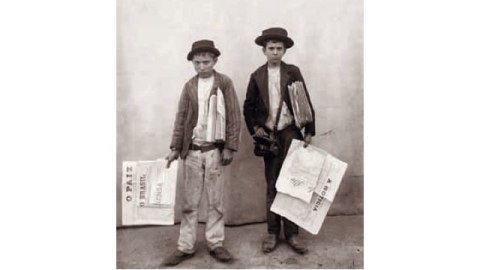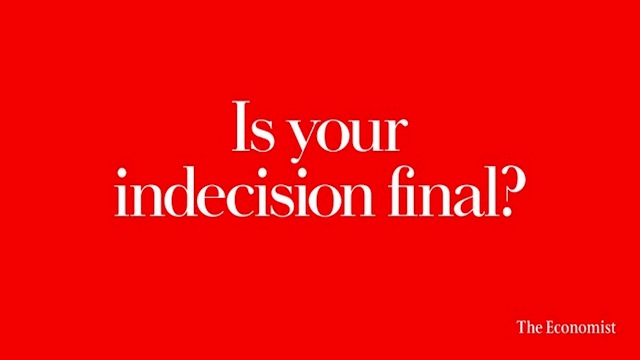The Subtle Biases of Economic Reporting

Among the many deplorable effects of reading this blog, according to old-school journalists, is that you can’t count on what The New York Times (here, scroll down to section B5) calls the “newsroom’s standards of fairness, taste and legal propriety.” There is no one protecting you from my prejudices and obsessions, dear reader. Those who make a living providing such protection have been known to tut and tsk about the blogosphere for that reason. But do these cubicle-dwelling champions of rectitude actually do what they’re supposed to? Not quite, according to this study: Comparing American newspapers’ economic coverage with their presidential endorsements, it found that papers increase their stories about unemployment when the party they’re against occupies the White House.
In the study, Valentino Larcinese, Riccardo Puglisi, and James M. Snyder Jr. counted economics-related stories published by major American newspapers from 1988 to 2005 (for big-circulation chains) and 1996-2005 for the others. As we don’t need economists to tell us that the Times leans Democrat while the New Hampshire Union-Leader prefers right-wingers, they weren’t looking for signs of absolute and constant bias. (And, in fact, they found that most newspapers were fairly centrist in their endorsement patterns, leaning neither too Blue nor too Red.) Rather, the study (in press at the Journal of Public Economics but there’s a pdf available of an earlier version), tested whether a newspaper’s endorsement, whatever its flavor, would “spill over” into its supposedly fair, filtered, judicious and professional coverage of matters like inflation, unemployment and trade.
The authors (whom I learned about from the excellent “Findings” blog at National Affairs) found a clear and strong effect in the 102 papers they studied (all the newspapers in the NewsLibrary archive, plus the New York Times, the Chicago Tribune and Los Angeles Times). “When the unemployment rate was one percentage point above the average,” they write, “newspapers with a strong propensity to endorse Republican candidates reacted with 15 percent per month more articles under Clinton than under Bush. For the same one percent increase, newspapers with a strong pro-Democratic endorsement policy have 9 percent less news on unemployment under Clinton than under Bush.”
Of course, newspapers read by Democrats will want to cater to their readers, and vice versa, but the authors say they corrected for this in their analysis. In other words, they say, what they’ve measured is purely the connection between editorial endorsements and economic coverage—the bias of the publishers and editors, not that of the readers.
Oh, well. Objectivity, like any other form of ethical perfection, isn’t a place to live. It’s an ideal to which American journalists aspire, because even though failure is inevitable, the effort does good. And the study also found evidence that newspapers can live up to their ideals. Larcinese et al. did not find a similar effect for the other three economic topics they tested: inflation, the Federal budget and America’s trade deficit.
Larcinese, V., Puglisi, R., & Snyder, J. (2011). Partisan bias in economic news: Evidence on the agenda-setting behavior of U.S. newspapers Journal of Public Economics DOI: 10.1016/j.jpubeco.2011.04.006





